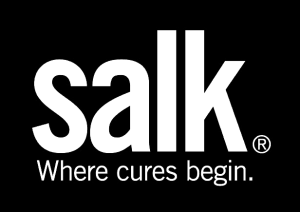
NOMIS Partnership
The Salk Institute for Biological Studies in La Jolla, California, is an independent, nonprofit organization dedicated to basic research in the biological sciences and is one of the foremost institutions of its kind in the world. Dr. Jonas Salk, the inventor of the polio vaccine, established the Institute in 1960, supported by a land grant from the city of San Diego and with financial support from the March of Dimes Foundation. Sharing the NOMIS Foundation’s focus on supporting basic scientific research and up-and-coming researchers, the Salk Institute’s scientists are not only contributing to our understanding of infectious diseases, cancer, diabetes, Alzheimer’s and other age-related diseases and processes, but are also actively mentoring the next generation of researchers and scientists. Their practice of making research results widely available and of focusing on the public good makes the Salk Institute a perfect example of the kind of collaboration the NOMIS Foundation is actively pursuing and cultivating around the world.
In 2008, NOMIS funded a new center at the Salk Institute, the NOMIS Center for Immunobiology and Microbial Pathogenesis, which focuses on gaining new insight into autoimmune diseases, and human metabolism and its dysfunctions. The NOMIS Center is staffed by highly respected researchers.
In 2018, Susan Kaech joined the Salk Institute as NOMIS Foundation Chair and director of the NOMIS Center. Kaech studies how immune cells—called T cells—remember infectious agents our bodies have previously encountered, in order to mount a more rapid response the next time we’re exposed to them—something we are all greatly appreciating presently as we battle COVID-19 and welcome the new vaccines that will provide long-term immunity to SARS-CoV-2.
“The research that people are doing at Salk is spectacular—really cutting-edge—and the tools that the labs are using to answer questions are very powerful and exciting,” Kaech says. “Being a part of this environment pushes me to think about problems from a different perspective that may ultimately lead to new understandings or ways of thinking about the function of our immune system.”
NOMIS Center Postdoctoral Fellowship Program
The NOMIS Center also takes prides in training the next generation of scientific leaders as exemplified through its prestigious NOMIS Center Postdoctoral Fellowship Program. The fellowship program has supported the careers of many talented postdocs over the last decade, with typically three postdoctoral fellows appointed annually to work on health and immunity research.